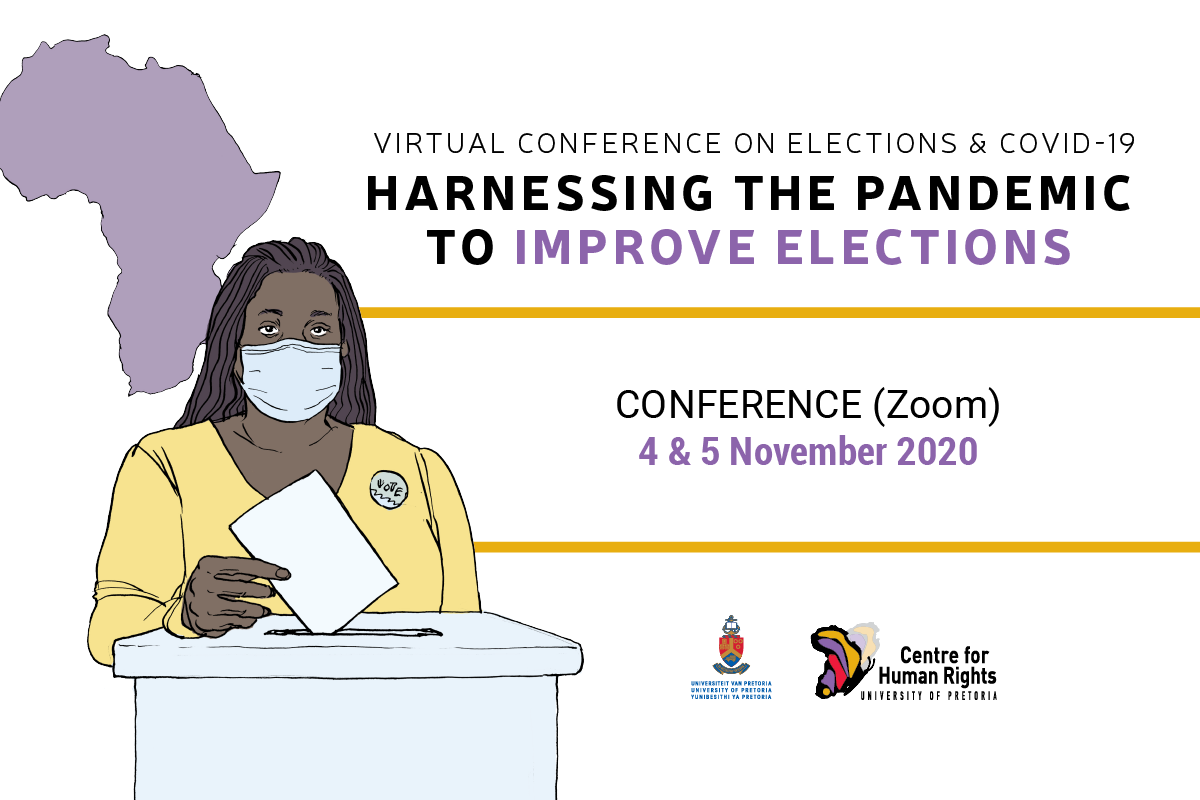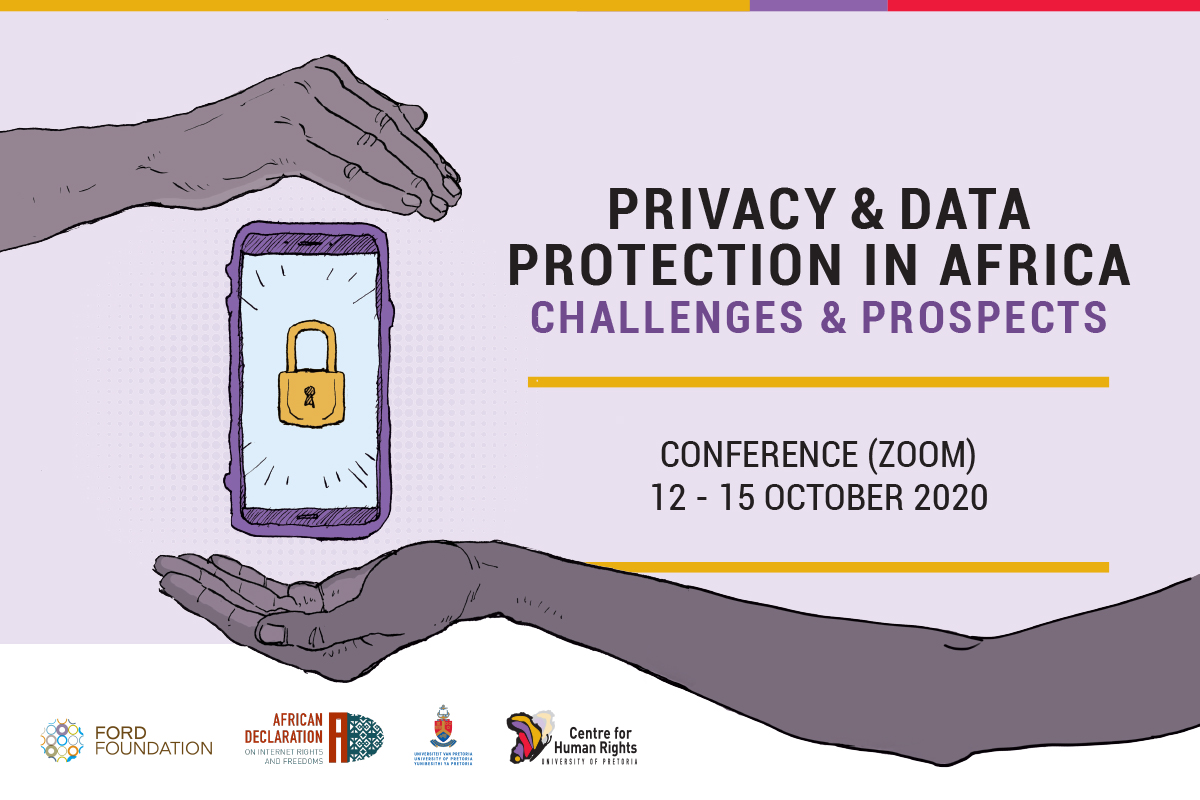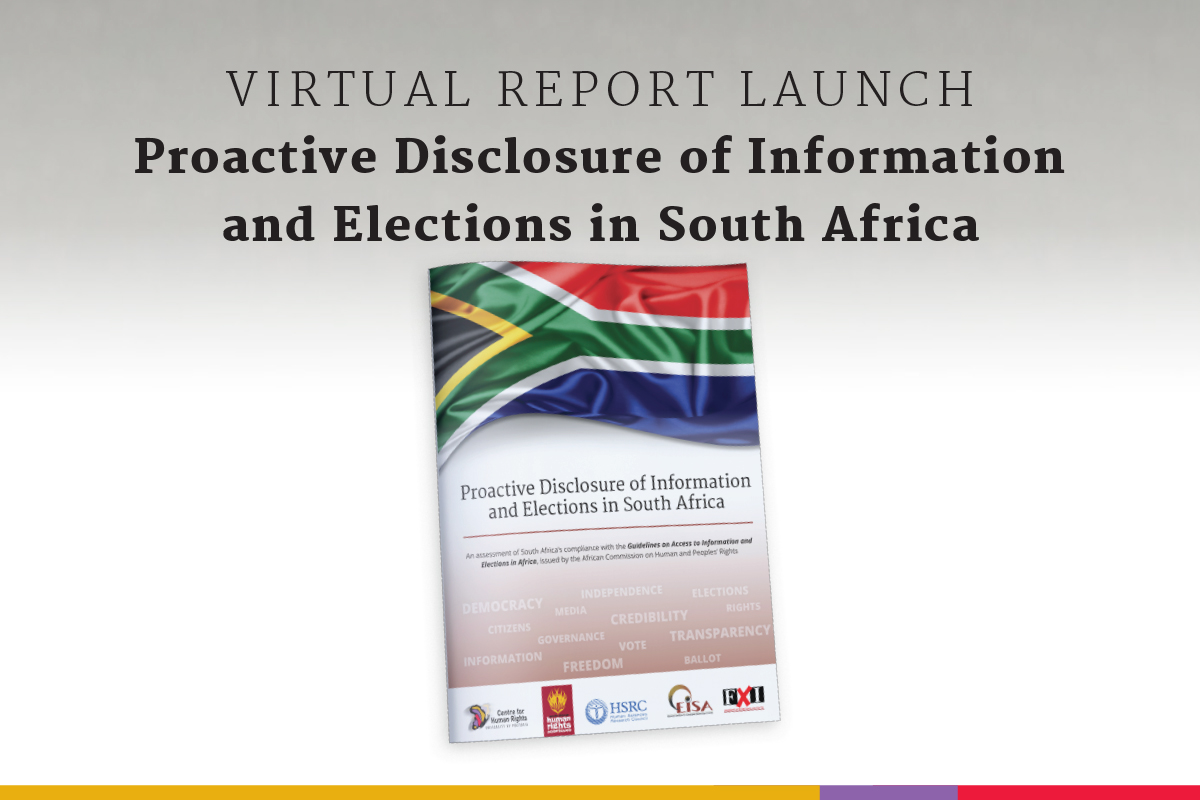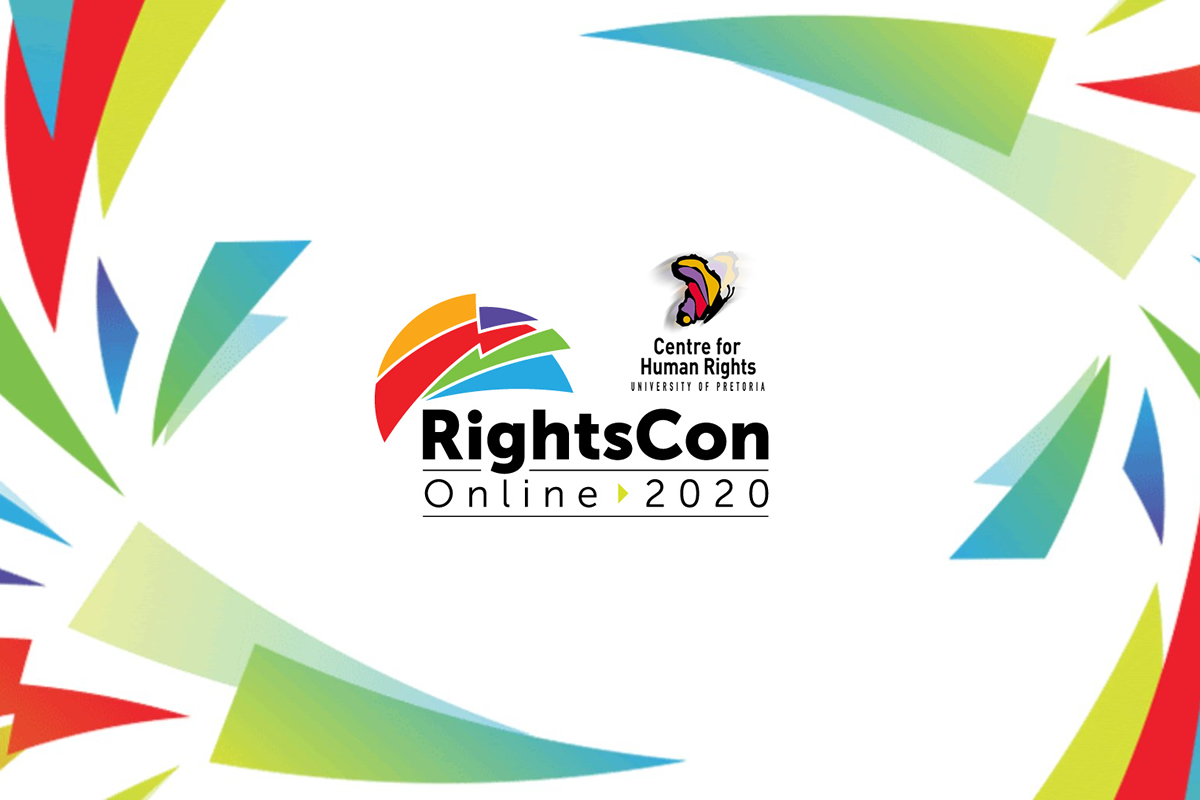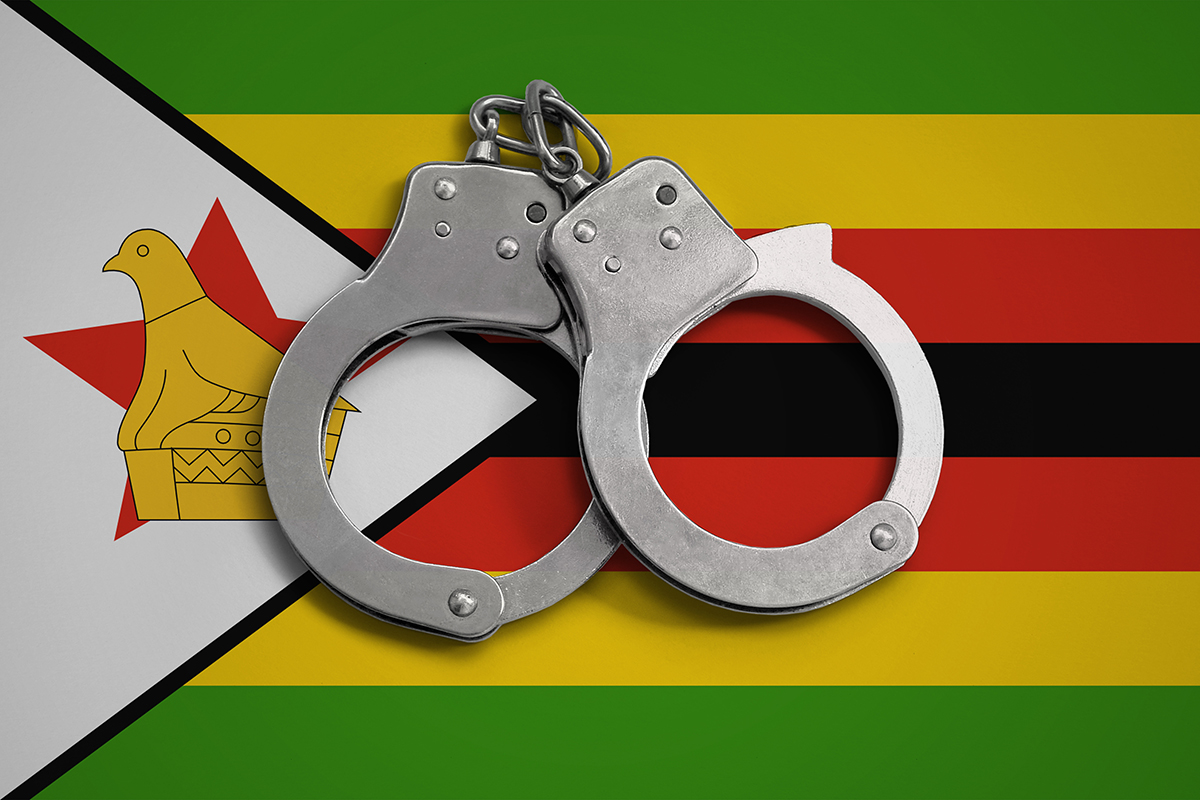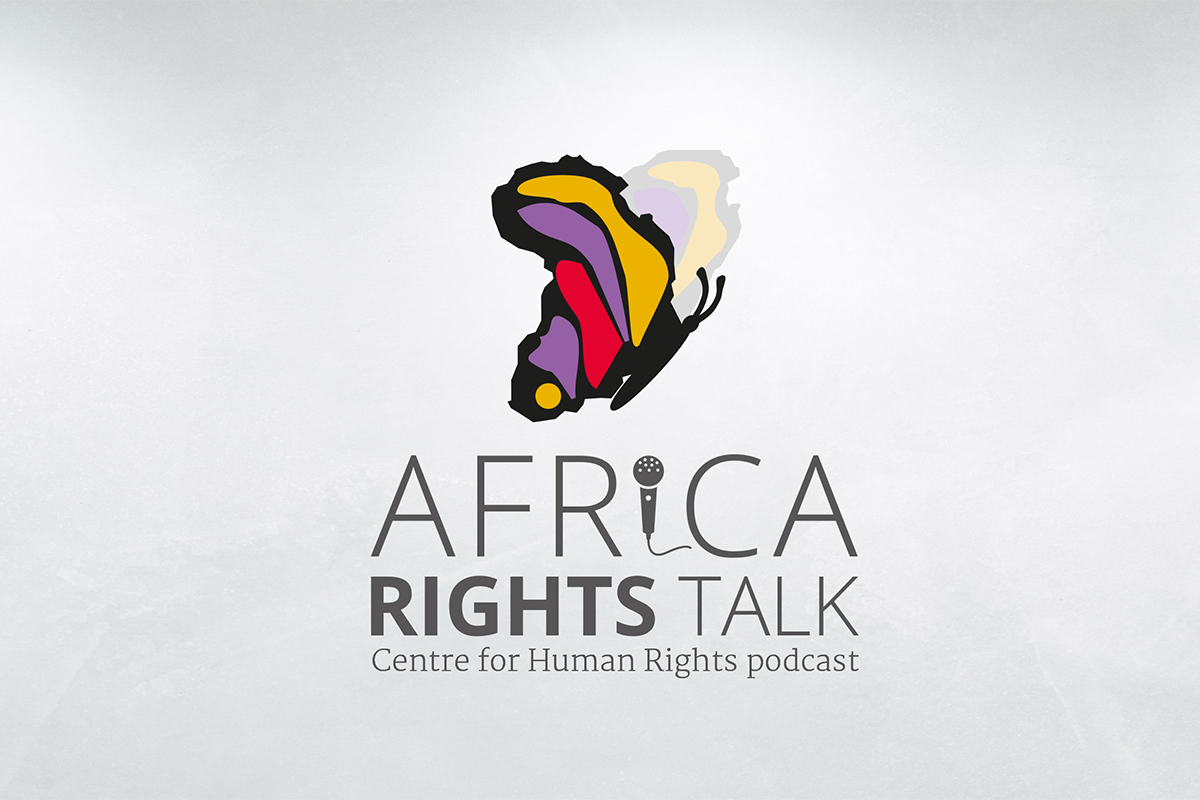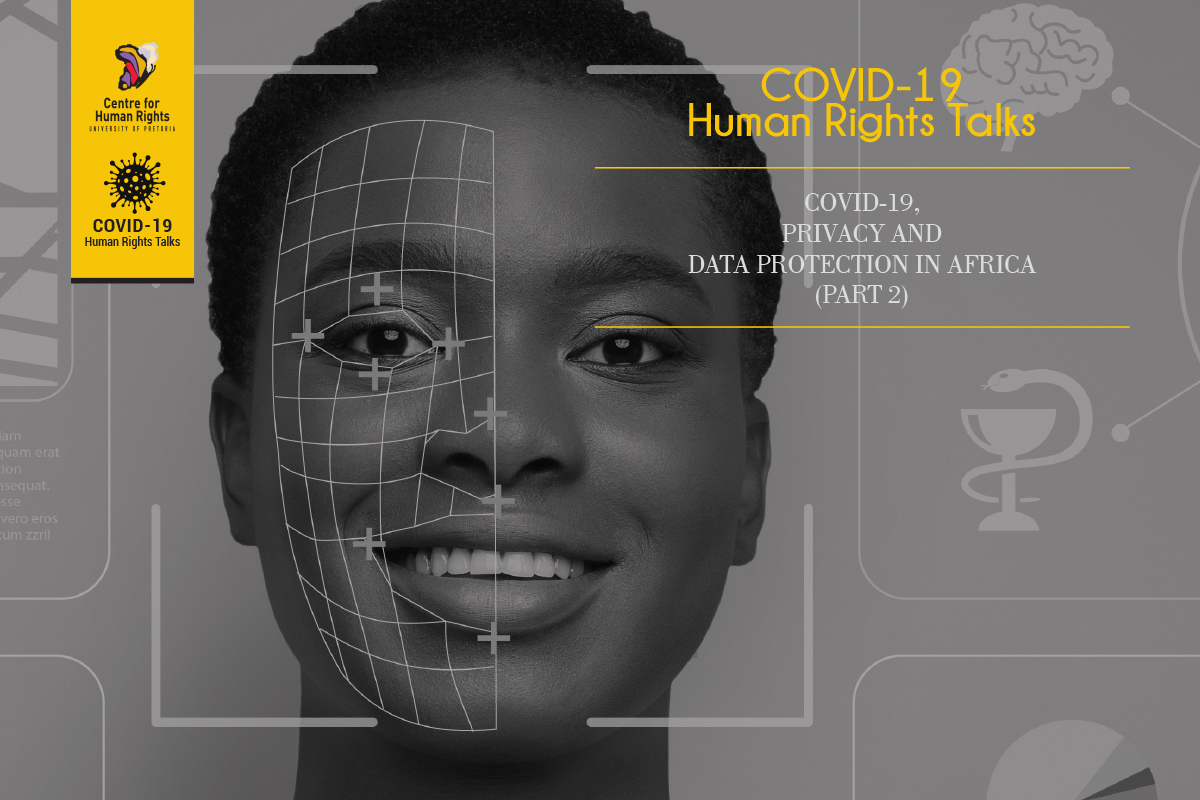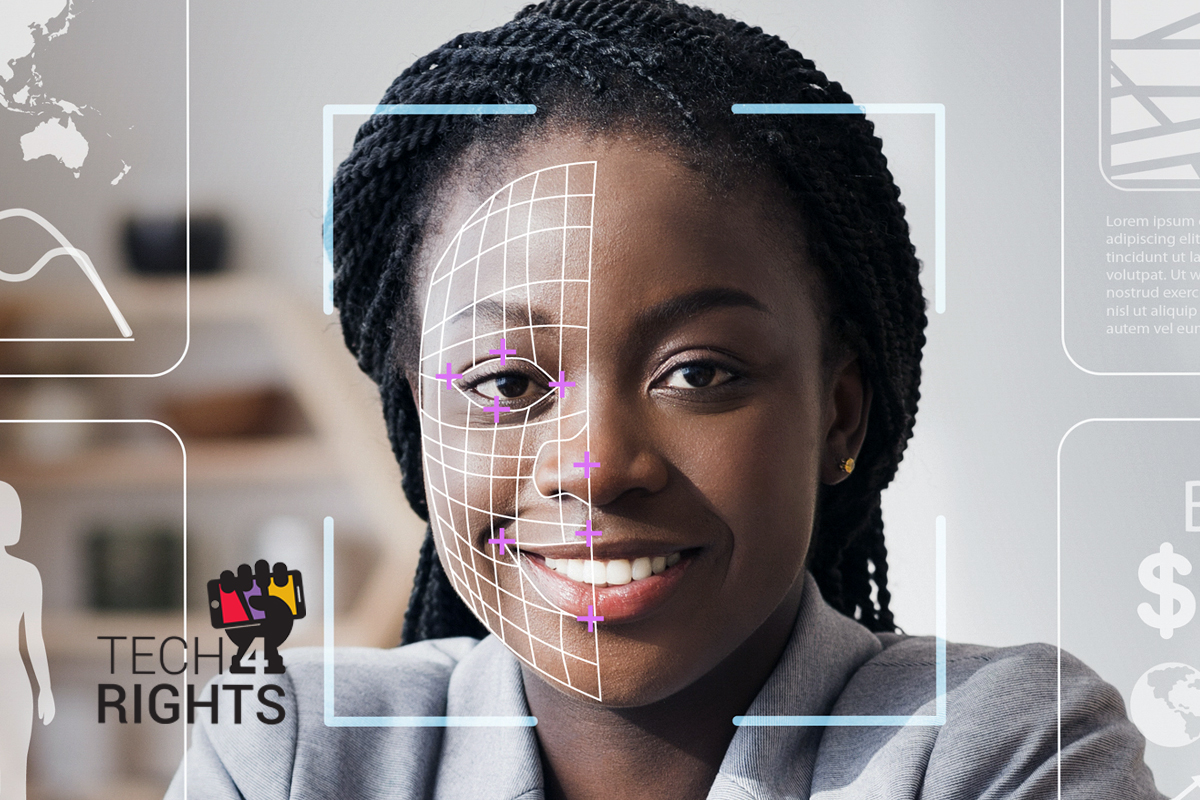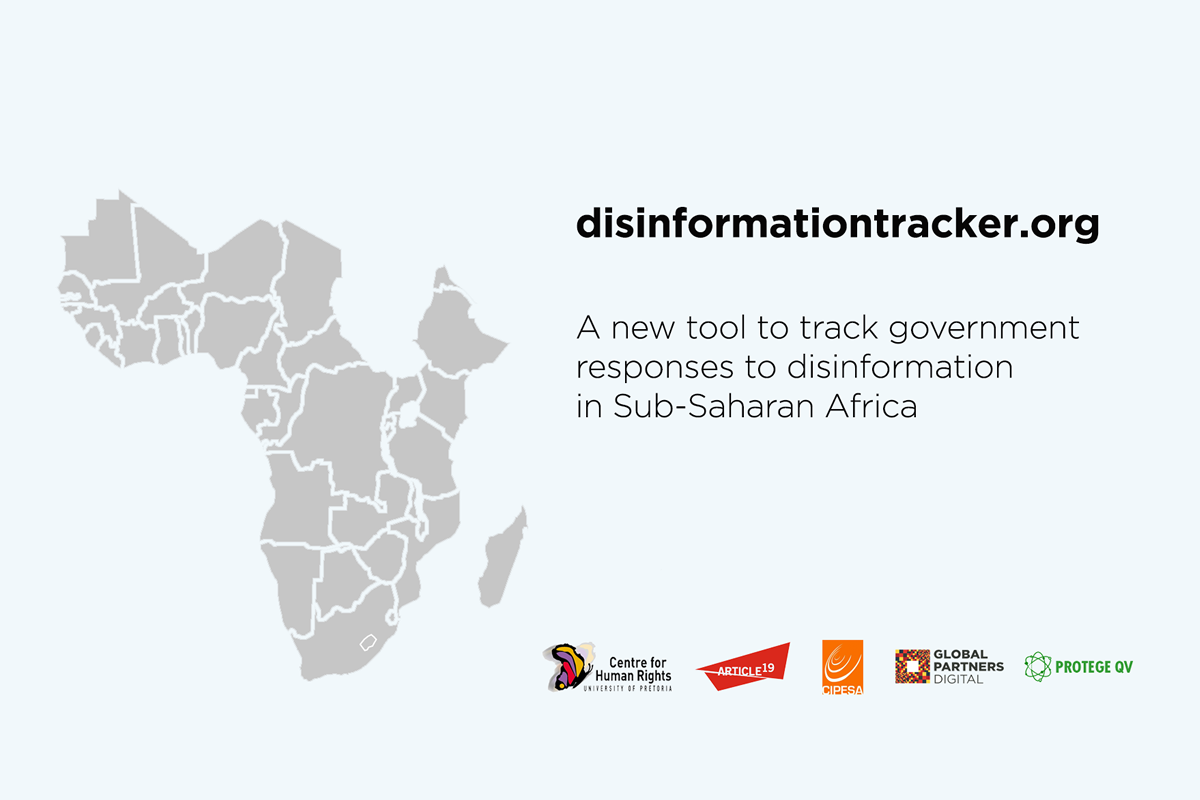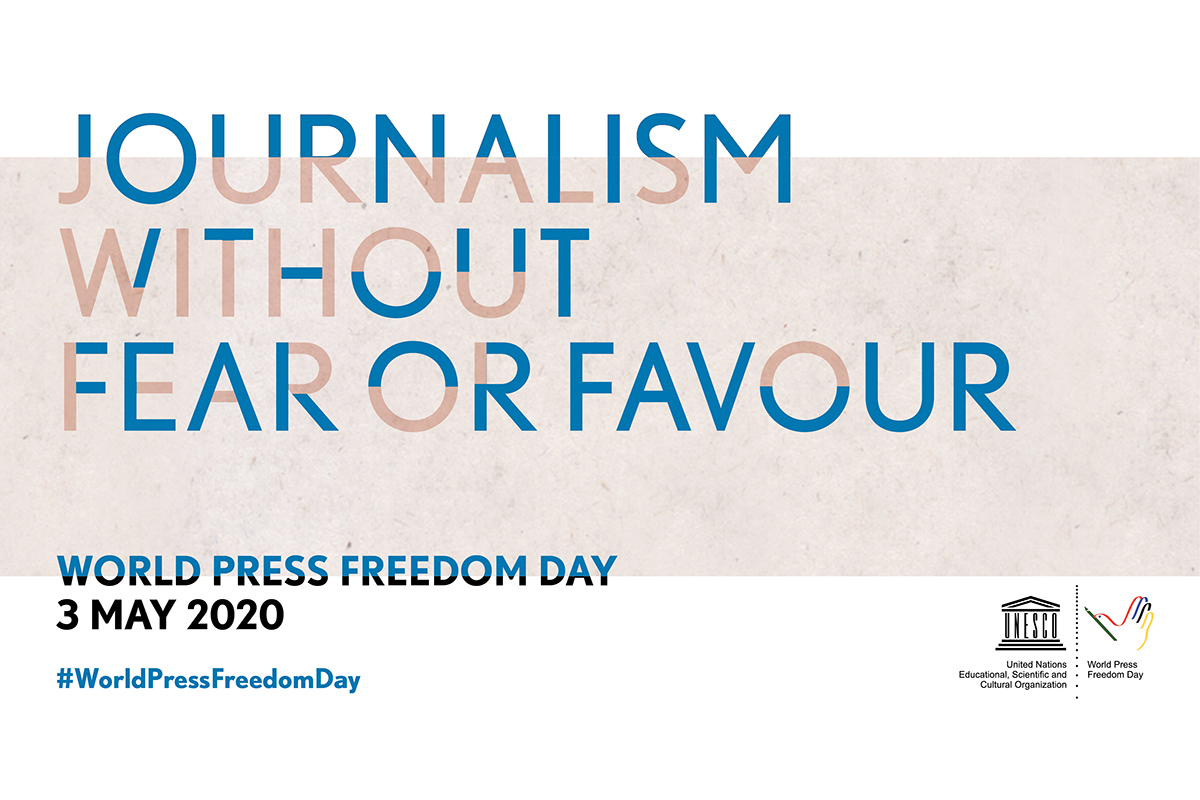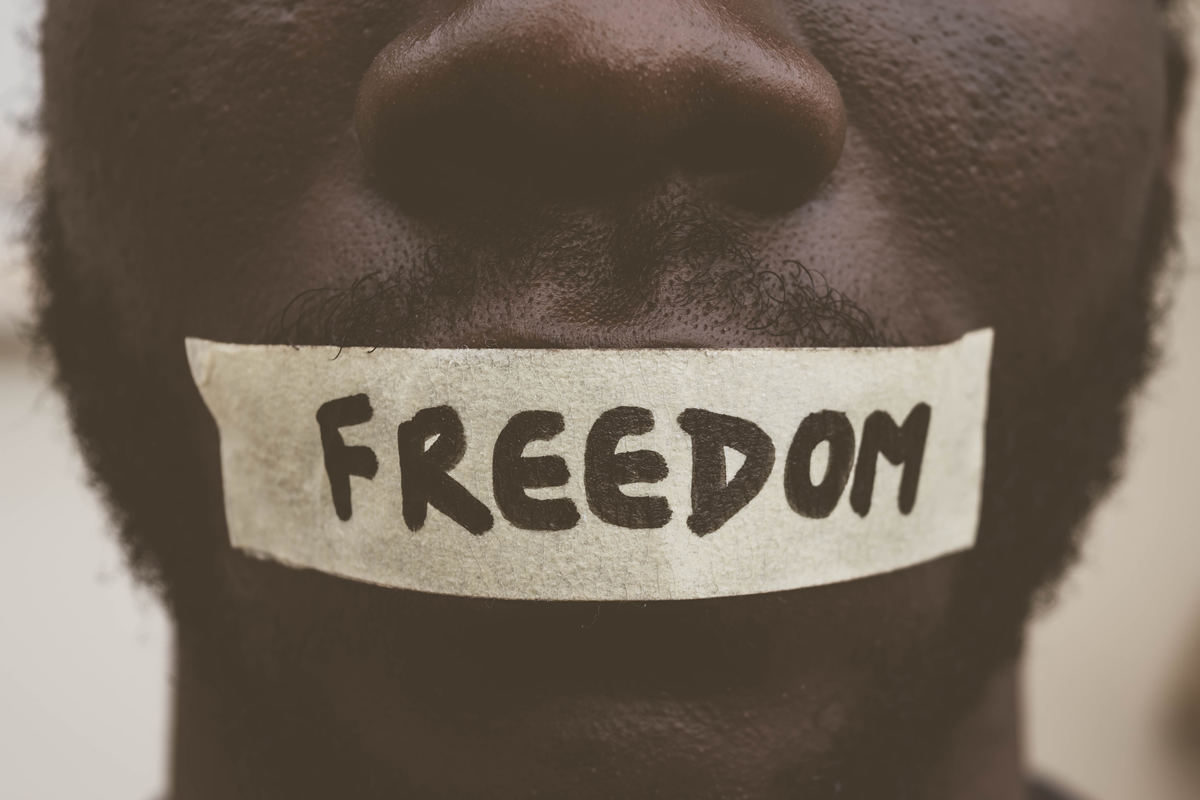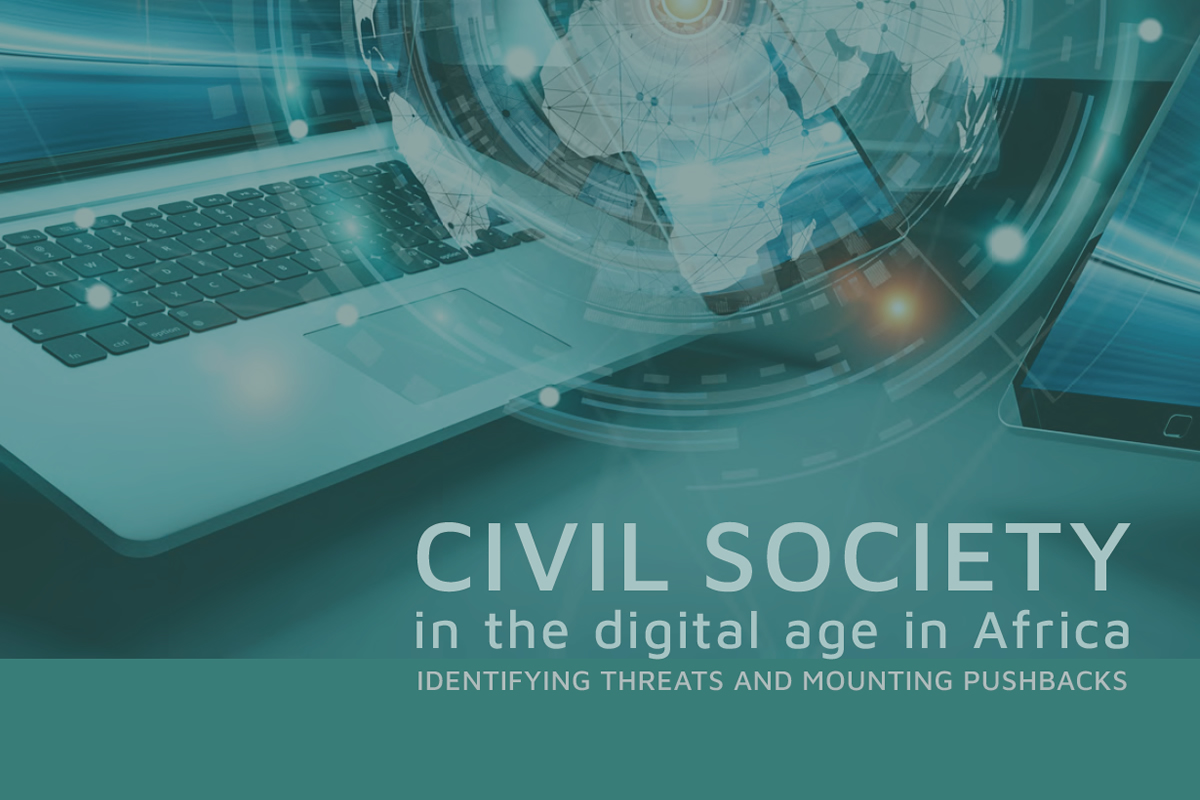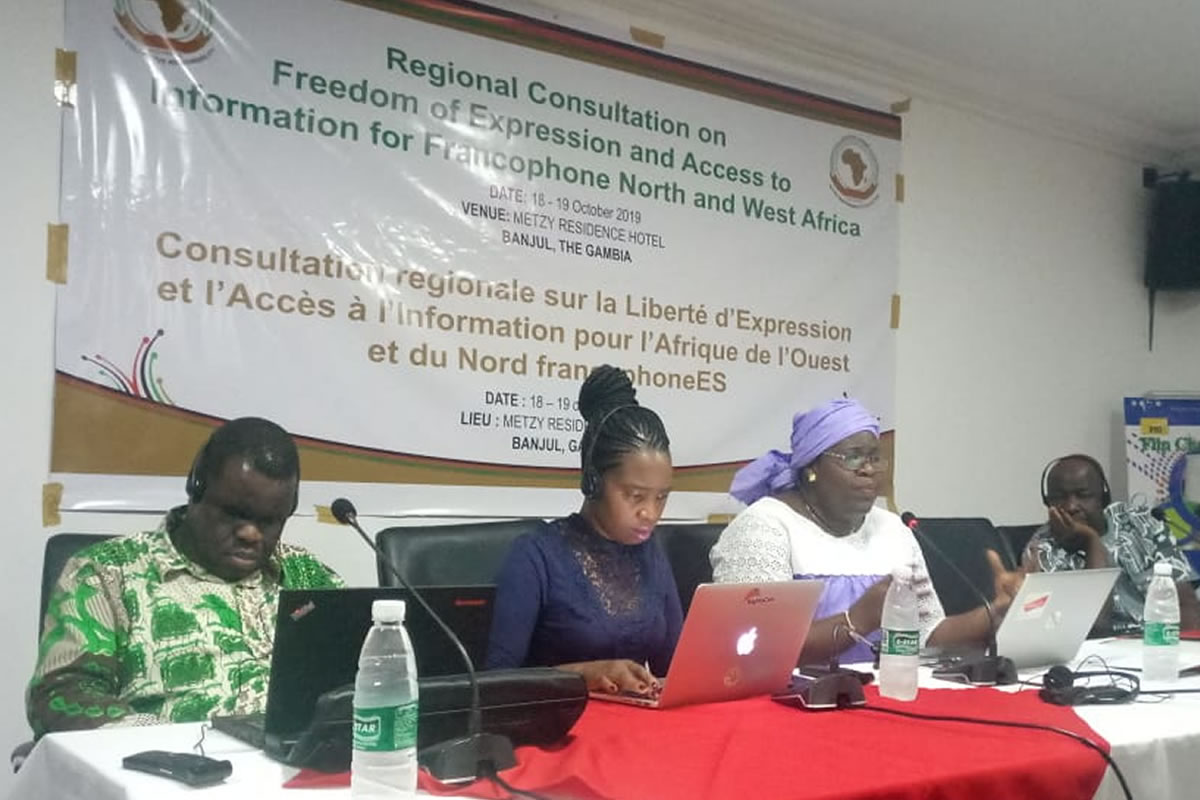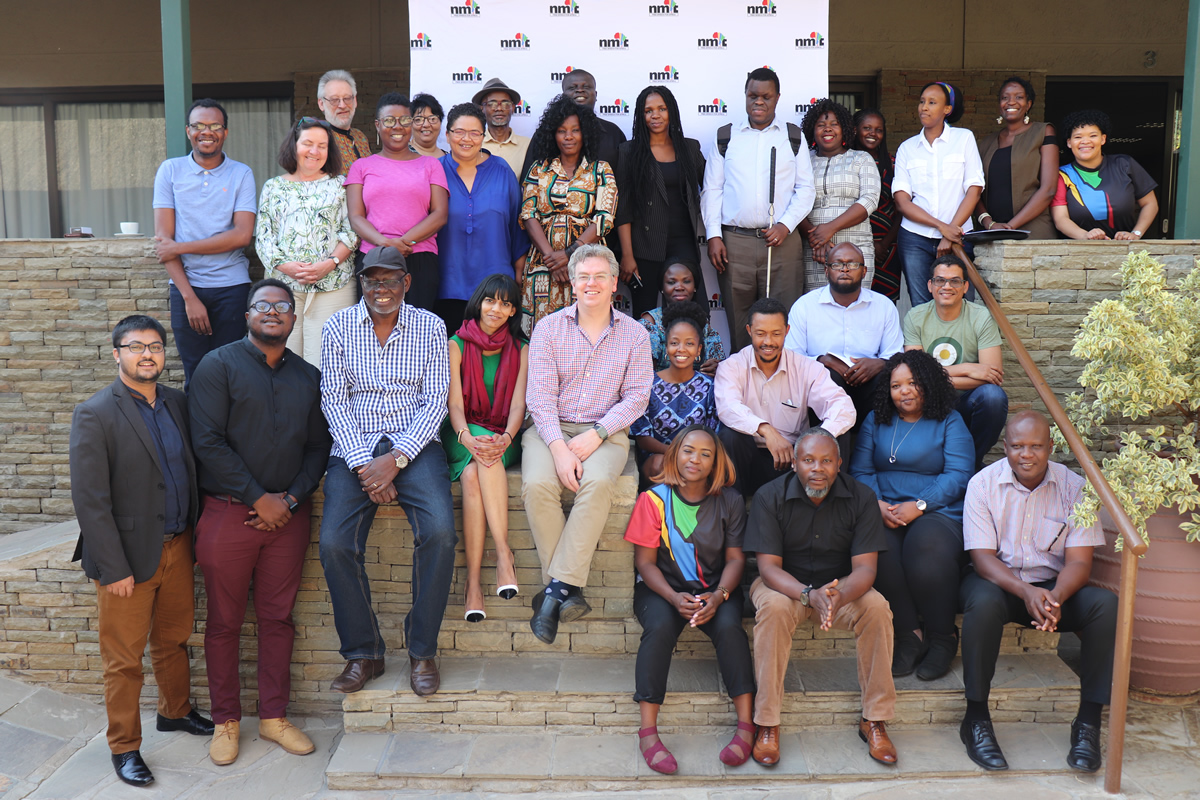The Centre for Human Rights, University of Pretoria, cordially invites you to a virtual conference on 4 and 5 November 2020. The theme of the conference is ‘Elections and COVID-19: Harnessing the pandemic to improve elections.’ The conference is organised by the Democracy and Civic Engagement Unit and the Expression, Information and Digital Rights Unit of the Centre for Human Rights. The conference invites academics, policymakers, practitioners, researchers and other stakeholders with a keen interest in democracy and elections, information technology and human rights law in the African context.
The Centre for Human Rights, University of Pretoria, cordially invites you to a conference on privacy and data protection in Africa from 12 to 15 October 2020. The conference is organised by the Expression, Information and Digital Rights Unit in collaboration with the African Declaration on Internet Rights and Freedoms Coalition(AfDec Coalition). The conference will be of interest to academics, students, policymakers and practitioners working in the areas of privacy, data protection, big data, information technology, and human rights law in Africa and others interested in understanding of the state of privacy and data protection, particularly within the African context. The conference is aimed at improving privacy and data protection scholarship in Africa.
The Centre for Human Rights, University of Pretoria, cordially invites you to a webinar organised by the Expression, Information and Digital Rights Unit on “Proactive disclosure of information and elections in South Africa”. The webinar will focus on South Africa’s compliance with the Guidelines on Access to Information and Elections in Africa, issued by the African Commission on Human and Peoples’ Rights. This flows from a collaborative research report on access to information and elections during South Africa’s 2019 elections, that will be formally launched.
The Expression, Information and Digital Rights Unit at the Centre for Human Rights, Faculty of Law, University of Pretoria will be hosting a session on “Civil society in the digital age in Africa: identifying threats and mounting pushbacks” at the 2020 RightsCon.
The Centre for Human Rights calls on the African Commission through the Special Rapporteur on Freedom of Expression and Access to Information in Africa to urgently issue an appeal to the Zimbabwean government to respect and abide by its human rights obligations under the African Charter and other international law. This ongoing crackdown, if left unchecked, will cement the culture of impunity and entrench unwarranted arrests of journalists and human rights defenders. The Centre for Human Rights also takes this opportunity to impress upon the relevant authorities the need to respect constitutional provisions on media freedom and free expression and reiterates that journalism is not a crime, but a crucial element in the exercise of freedom of expression and an essential component of democracy that is also instrumental in fighting against corruption. Journalists and other media practitioners deserve protection.
#Tech4Rights: The importance of technology and human rights
In conversation with Ms Hlengiwe Dube
On 7 July 2020, the Centre for Human Rights, University of Pretoria, hosted a follow-up webinar on privacy and data protection in Africa in the COVID-19 context. Privacy and data protection practitioners from Africa analysed the current status of data protection and privacy on the continent. In the responses to COVID-19, there is collection, sharing, storage and processing of personal information. This raises questions regarding Africa’s preparedness to the security, management and protection of personal information and safeguarding the right to privacy. The webinar assessed privacy and data protection approaches in the various responses to COVID-19.
The Centre for Human Rights is inviting experts and practitioners in the area of privacy and data protection to submit abstracts for a conference and book project. Contributions can be in the context of national, regional and international human rights on legal, regulatory, academic and technological developments and other perspectives on privacy and data protection. This project is meant to build upon existing scholarly work on data protection and data privacy in Africa. The book publication will be preceded by a conference that will be held in October 2020. Book chapters will be selected from the conference manuscripts.
Today, Global Partners Digital (GPD), ARTICLE 19, the Collaboration on International ICT Policy for East and Southern Africa (CIPESA), PROTEGE QV and the Center for Human Rights, University of Pretoria, jointly launched an interactive map to track and analyze disinformation laws, policies, and patterns of enforcement across Sub-Saharan Africa.
As the world commemorates the World Press Freedom Day, the Centre for Human Rights, University of Pretoria, commends the African Commission on Human and Peoples’ Rights for making available the revised Declaration of Principles of Freedom of Expression and Access to Information in Africa at a time when the world has been plunged into a global health crisis, COVID-19. The current Declaration replaces the 2002 Declaration of Principles of Freedom of Expression in Africa. The revision was undertaken by the Special Rapporteur on Freedom of Expression and Access to Information (Special Rapporteur) against the backdrop developments in the developments that have taken place in the context of freedom of expression, access to information.
The African Commission on Human and Peoples’ Rights has published the revised Declaration of Principles of Freedom of Expression and Access to Information in Africa (the Declaration). The Commission adopted the Declaration during its 65th Ordinary Session which was held from 21 October to 10 November 2019 in Banjul, The Gambia. The revised Declaration replaces the 2002 Declaration of Principles of Freedom of Expression in Africa. The initiative to revise the Declaration was undertaken by the Special Rapporteur on Freedom of Expression and Access to Information (the Special Rapporteur). The adoption of the Declaration is a landmark development that elaborates article 9 of the African Charter on Human and Peoples’ Rights and will contribute to an enhanced normative standard for freedom of expression, access to information and digital rights in Africa, in line with international human rights and standards. The Declaration was scheduled to be launched during the African Commission’s 66th Ordinary Session which has been deferred due to the COVID-19 crisis.
The study on Civil society in the digital age in Africa: identifying threats and mounting pushbacks was undertaken by the Centre for Human Rights, University of Pretroia and the Collaboration on International ICT Policy in East and Southern Africa (CIPESA) to explore the extent of state-sponsored digital challenges that the civil society in Africa is faced with. It illustrates the challenges faced by civil society organisations and the importance of digital security measures.
On 18 and 19 October 2019, the Democracy, Transparency and Digital Rights (DTDR) Unit at the Centre for Human Rights, University of Pretoria, participated in the regional consultation meeting for Francophone West Africa and North Africa on freedom of expression and access to information. The meeting was organised by the Special Rapporteur on Freedom of Expression and Access to Information in Africa, Commissioner Lawrence Mute. The consultation was aimed at discussing strategies for ensuring effective realisation of access to information; exploring how access to information may be used to support a free and fair electoral environment; and strategising on ways of ensuring freedom of expression.
On 19 and 20 September 2019 the Democracy, Transparency and Digital Rights Unit at the Centre for Human Rights, University of Pretoria, attended the sub-regional consultation to revise the draft Declaration of Principles on Freedom of Expression and Access to Information in Africa in Windhoek, Namibia. The consultation was at the invitation of the Special Rapporteur on Freedom of Expression and Access to Information in Africa Mr Lawrence Mute and was hosted and facilitated by the Namibia Media Trust in collaboration with ACTION Namibia Coalition.

